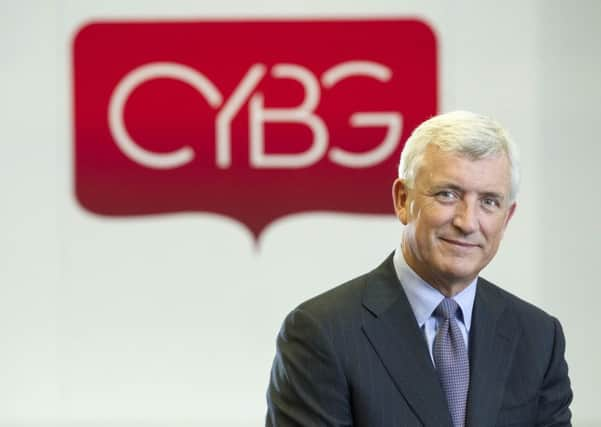Yorkshire Bank owner joins RBS in saying it expects a ‘material’ hit from late PPI claims


CYBG, Clydesdale and Yorkshire Bank Group, which bought Virgin Money last October, said it saw “unprecedented” levels of information requests and a jump in PPI complaints last month and in the final days before the claims cut-off.
It said it would take “several months” to calculate the financial impact, but is working on an initial cost estimate, which is expected to be material.
Advertisement
Hide AdAdvertisement
Hide AdThe alert comes after Royal Bank of Scotland also warned yesterday that it expects to take another PPI hit of between £600m and £900m after claims shot up last month.
The part-nationalised bank said the number of claims last month was “significantly higher than expected”, with a spike in the final days before the deadline.
RBS said it now expects to take a charge of between £600m and £900m for payment protection insurance (PPI) in its third quarter results.
This comes on top of the £5.3bn in provisions already set aside by the bank.
Advertisement
Hide AdAdvertisement
Hide AdThe industry has seen a rush in PPI mis-selling claims this year before the deadline, with a pick up in the final few months and a flurry in the final days.
Santander was forced to extend its deadline for claims to be submitted after complaints its website was not working, which it said was due to high numbers of customers contacting it about PPI.
RBS’s PPI charge looks set to dent its third quarter figures after a robust first half for the lender, which saw it deliver a £1.7bn special dividend payout for shareholders, offering a surprise windfall for the taxpayer.
The dividend cheer followed its highest half-year bottom-line profits in more than a decade, with attributable profits jumping 130 per cent to £2bn. Meanwhile, operating pre-tax profits outstripped forecasts, rising 48 per cent to £2.7bn. But RBS - which is still 62 per cent owned by the Government - made no further PPI provisions for the half-year at the time.
Advertisement
Hide AdAdvertisement
Hide AdAn estimated 64 million PPI policies were sold in the UK - many in the 1990s and early 2000s.
PPI was routinely added to products such as store cards, credit cards or mortgages.
It was intended to protect people if they could not keep up with their payments, due to illness or unemployment for example.
But it was widely-mis-sold, with customers pressured into buying it, while many did not know they had it, or found it was unsuitable for them.
Advertisement
Hide AdAdvertisement
Hide AdBritish banks have so far paid out more than £36bn to consumers, eight years after it first emerged they were missold the loans insurance on a vast scale.
Consumers had been bombarded with commercials and advertisements pushing them to make last minute PPI claims to their banks. One such campaign was financed by banking regulator the Financial Conduct Authority (FCA) and fronted by US actor-turned-politician Arnold Schwarzenegger.
In July, CYBG eported a dip in mortgage loans and margins in the third quarter. The firm said it stood by its full-year guidance, but net interest margins are likely to be atthe lower end of earlier forecasts.
It was one of several banks to report a dip in mortgage loans as the UK’s impending exit from the European Union sapped confidence among housebuyers. However, CYBG said this had been offset by rises in both personal and business loans.
Chief executive David Duffy said: “Even with the twin pressures of Brexit and the highly competitive mortgage market, we remain on track to deliver full year performance in line with our guidance.”